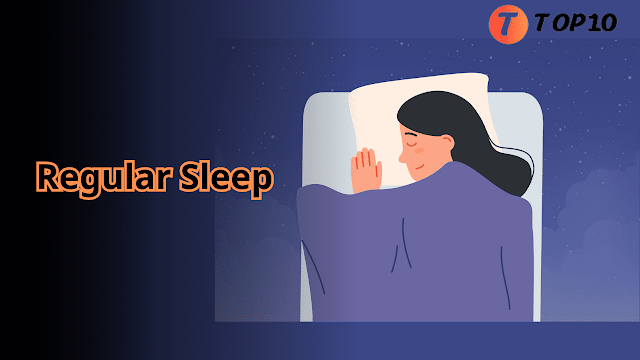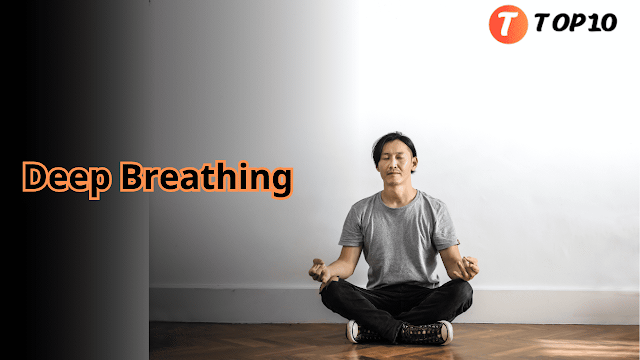Ten Proven Approaches to Deal with Stress and Anxiety Effectively
Here are the top 10 ways to treat stress and anxiety, as stress is a part of being human and can drive you to accomplish tasks. Even severe stress resulting from a serious illness, job loss, family death, or a painful life event can be a natural part of life. You may feel depressed or anxious, which is also normal for a period of time. Consult your healthcare provider if you experience persistent feelings of sadness or anxiety lasting for several weeks, or if it begins to disrupt your daily life, whether at home or at work. Treatment, medication, and other strategies can help you overcome anxiety and stress - 10 ways to reduce stress.
Top 10 Ways to Treat Stress and Anxiety
Learn about the top 10 ways to treat stress and anxiety - how to relieve stress and anxiety?
10- Exercise
 |
| Exercise |
anxiety and stress relief - Exercise.
Firstly, physical activity can improve your sleep, and better sleep means better stress management. Doctors may not know the exact reason for this, but people who engage in more exercise tend to get better, deeper sleep that helps rejuvenate the brain and body.
Just be cautious not to exercise close to bedtime, as it can disrupt the sleep of some people.
It seems that physical exercises also help improve mood.
One of the reasons might be that it stimulates your body to release a number of hormones, such as endorphins and endocannabinoids, which help to alleviate pain, improve sleep, and calm you down.
Some of them (endocannabinoids) may be responsible for the feeling of euphoria that some people experience after extended periods.
Stress increases the levels of stress hormones such as adrenaline and cortisol in your body.
These are the fight-or-flight hormones that evolution has wired into our brains, designed to protect us from direct physical harm when we are under threat.
However, in the modern age, stress is rarely treated through the fight or flight response. Therefore, physical exercise can be used as an alternative to regulate excessive stress hormones and bring your body and mind back to a state of greater calm and relaxation.
When you feel stressed, take a quick walk in the fresh air.
Try to incorporate some physical activities into your daily routine regularly, whether before work, after work, or during lunchtime, and regular physical activity also improves the quality of your sleep.
9- Eat Healthy Foods
 |
| Eat Healthy Foods |
relieving stress - Eat Healthy Foods.
- The benefits of eating healthy foods extend beyond your waistline to your mental health, as a healthy diet can help alleviate the effects of stress, boost your immune system, improve your mood, and lower your blood pressure.
- A lot of sugar and fat can have a counterproductive effect, and fast food can seem more appealing, especially when you're tired.
- To prevent stress and anxiety, look for carbohydrates, proteins, and fatty acids found in fish, meat, eggs, and nuts.
- Antioxidants also help in overcoming anxiety and stress as they protect your cells from the damage that chronic stress can cause.
- You can find them in a wide and diverse range of foods such as beans, fruits, berries, vegetables, and spices like ginger.
8- Regular Sleep
 |
| Regular Sleep |
natrol stress and anxiety - Regular Sleep.
- One common side effect of stress is that you may struggle to fall asleep.
- If this happens at least three times a week for a minimum of three months, you may be experiencing insomnia – the inability to fall and stay asleep. Lack of sleep can also exacerbate stress and lead to a cycle of stress and insomnia.
7- Yoga
 |
| Yoga |
reduce stress and anxiety - Yoga.
- Yoga, this is a form of exercise, but it can also be equated with meditation.
- There are many types of yoga, and practices that focus on slow movement, stretching, and deep breathing are the best ways to reduce anxiety and stress.
6- Meditation
 |
| Meditation |
anxiety stress relief - Meditation.
- It has been around for over 5,000 years for a reason; meditation benefits many people in overcoming stress and anxiety, with numerous advantages.
- It can reduce stress, anxiety, and chronic pain, and improve sleep, energy levels, and mood.
- It is considered one of the top 10 ways to treat stress and anxiety.
5- Deep Breathing
 |
| Deep Breathing |
stress and anxiety treatment - Deep Breathing.
- When you practice deep breathing, you regain your body's natural ability to relax. This creates a state of deep relaxation that can change how your body responds to stress. It sends more oxygen to your brain and calms the part of your nervous system that controls your ability to relax.
- Try breathing from your diaphragm, relax, close your eyes, and place one hand on your abdomen and the other on your chest.
- Take a deep breath through your nose; you should feel comfortable now. Breathe out and observe your body's relaxation response.
4- Avoid Nicotine and any Beverages Containing Caffeine and Alcohol
 |
| Avoid Nicotine and any Beverages Containing Caffeine and Alcohol |
ways to reduce stress and anxiety - Avoid Nicotine and any Beverages Containing Caffeine and Alcohol.
- Caffeine and nicotine are stimulants, so they increase stress levels rather than reducing them.
- Alcohol is a depressant when consumed in large quantities, but it acts as a stimulant in smaller amounts, so using alcohol as a way to relieve stress is ultimately not beneficial.
- Replace alcoholic beverages and caffeine-containing drinks with water, herbal tea, or diluted natural fruit juices. Your goal should be to stay hydrated as it will enable your body to better cope with stress.
- You should also aim to avoid or reduce frequent sugar intake - it is present in many processed foods (even in tasty items like salad dressings and bread).
- Excessive sugar can lead to energy crashes that may result in feelings of fatigue and general discomfort. Try to maintain a healthy, balanced, and nourishing diet.
3- Connecting with People
 |
| Connecting with People |
extreme stress and anxiety - Connecting with People.
- Spend some time with a friend or family member who listens to you.
- It's a natural way to calm down and reduce your stress because when you engage with people personally, your body releases a hormone that stops the anxiety and stress response.
- Your response to people directly affects your stress levels.
- Manage your reaction by following these tips: Try not to overcommit, share responsibilities, count to 10 before responding, step away from the heated situation, and distract yourself with music or a podcast.
2- Inner Voice
 |
| Inner Voice |
stress-induced anxiety - Inner Voice.
- Nothing affects stress levels like the voices and thoughts that come from within your head. The good news is that you are in control, and you can replace negative thoughts with positive ones.
- There are more benefits to positive self-talk than just reducing stress.
- These factors include a longer life, lower levels of depression, greater resistance to colds and cardiovascular diseases, and better coping skills during tough times.
1- Laughter Therapy
 |
| Laughter Therapy |
stress anxiety - Laughter Therapy.
- When you laugh, you inhale more oxygen.
- Your heart, lungs, and muscles get a workout, and your body releases those hormones that make you feel good.
- Laughter also improves your immune system, alleviates pain, and enhances your mood for extended periods.
- Long-term talk therapy helps some people deal with stress.
- One way, Cognitive Behavioral Therapy, helps you change negative thinking patterns.
- Your therapist can guide you to other helpful methods.
- 5x30: jogging, walking, biking, or dancing three to five times a week for 30 minutes.
- Set small daily goals and aim for daily consistency rather than perfect workouts.
- It's better to walk every day for 15 to 20 minutes than to wait until the end of the week. Committing to fitness for three hours is considered one of the top 10 ways to treat stress and anxiety.











